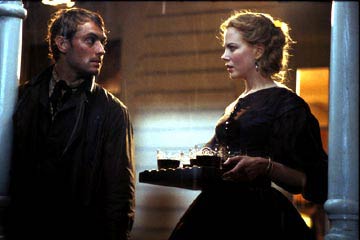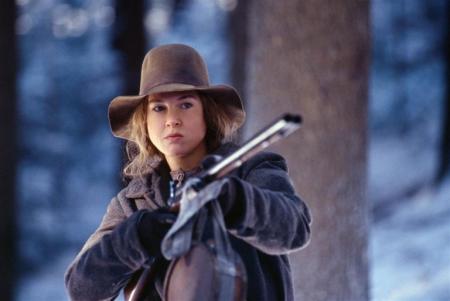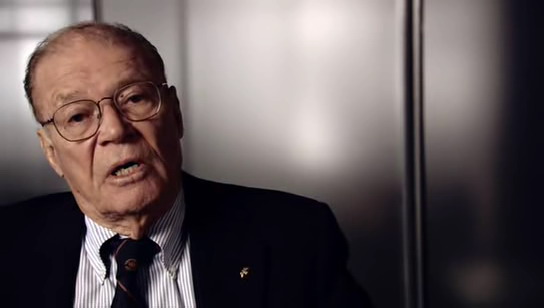Jack Beatty of the Atlantic Monthly surveys the effects of a Great Depression on Calvin Coolidge.
Category: History
MLK.

“Our lives begin to end the day we become silent about things that matter.“
– Dr. Martin Luther King (1929-1968)
Bad Judge of Character.
Going over the heads of the Democrats in Congress, President Uniter-not-a-Divider gives segregationist Judge Charles Pickering a recess appointment (which he can hold until January 2005, after the seating of the next Congress.) In case you missed it, Pickering’s segregationist backstory was ably fleshed out by historian Sean Wilentz eight months ago.
Defending Camelot.
In his most recent “History Lesson,” Slate‘s David Greenberg explodes the conservative myth of JFK as the original supply-sider.
Smothered in History.
Hey y’all. Sorry it’s gotten so quiet in these parts of late…I haven’t fallen into an XBox Live hole, although I’d very much like to. In fact, I’ve actually been putting in 14/15-hour days all week on a freelance project and orals work, and I expect this monster schedule will continue right up until the new semester begins after MLK day. This freelance work is a beast, but fortunately it’s American-history intensive…basically involving composing short essays and links for an online textbook website. So, I may be light on interpretation, but at least I can tell the differences among the Webster-Ashburton Treaty, the Adams-Onis Treaty, and the Treaty of Guadalupe Hidalgo, I know who lost the Battle of New Orleans, who won the Battle of Oriskany, and who died at the Battle of Shiloh, and I’ve even learned a thing or two about random foolios like I.L. Elwood, Ignaz Semmelweis, and Sir Ferdinando Gorges. That’s gotta be good for something, right?
A Frigid, Starry Peak.

Well, I haven’t read the Charles Frazier novel, but I’d say “Cold Mountain” is an apt and colorful metaphor to sum up this film, its stars, and even its director’s entire body of work. For like Nicole Kidman and Jude Law, and as with The English Patient and The Talented Mr. Ripley, Cold Mountain is beautiful but distant, occasionally breathtaking but often chilly, and not so much high as just plain stilted. In fact, the hike up and down this Cold Mountain includes definite moments of grandeur, but more often than not it feels like a bit of a slog. At times, it’s even glacial.
I should say up front that this is a far better Confederate-centered Civil War film than the vile Gods and Generals. The chaos and carnage of the Battle of the Crater that opens the film seems much more real and visceral than anything in the godawful G&G. Whatsmore, the historical aspects of Mountain generally feel right (In fact, much of the film seems like a fictionalization of Drew Gilpin Faust’s Mothers of Invention, which vividly describes how the lives of Southern women were transformed by the war experience and the collapse of the Confederate patriarchy.)
Unfortunately, the respectable versimilitude of the film keeps getting undermined by the wattage of its star power. From Stalingrad to Petersburg, nobody in the business does starving-but-handsome-and-resolute-warrior as well as Jude Law these days, and he’s quite good here despite the frequent accent-slippage. But, frankly, Nicole Kidman feels all wrong here. It’s not that she’s bad per se, it’s just that, like her ex-husband in 19th-century Japan three weeks ago, she never seems like she fits this milieu at all. (It doesn’t help that she spends most of the end of the film in an outdoor outfit that looks Banana Republic-coordinated.) Finally, others have noted the lack of chemistry between Law and Kidman, and I too thought the central romance here was rather uninvolving.
But, even if the two leads’ remarkable frigidity wasn’t distracting enough, Law and Kidman are just the tip of the iceberg. In fact, in the spirit of the film, I’ll go ahead and torture this metaphor even further…Perhap sensing that the romantic low burn here might be too dim a fire to heat the screen for 150 minutes, Anthony Minghella has packed Cold Mountain so full of stars and cameos that it starts to feel like It’s a Mad, Mad, Mad, Mad World. From Lucas Black getting bayonetted in the opening minutes to Jack White procuring cider at the very end (in yet another of Minghella’s quintessentially ham-handed symbolic moments, but I’ll get to that later), famous faces keep appearing around every corner of the poor, white backcountry South, and it took me out of the movie almost every time. Basically, I found it hard to become engrossed in the film when I kept thinking things like “So, that’s what Kathy Baker‘s been up to…she got married to the manager from Major League,” “James Rebhorn‘s his doctor? He’s toast,” “Well, Jena Malone didn’t last very long,” “and “Hey, that’s Cillian Murphy. Between him and Brendan Gleeson, this is like a sequel to 28 Days Later…um, except it has no zombies and it’s set in the Civil War South.”
Ok, perhaps that’s an unfair criticism, but I’d think even people who don’t go to the movies much are going to be distracted by all the Hollywood faces flitting about. I should say while I’m on the subject that Brendan Gleeson is very good (as always) here – Not only does he handle the accent like a champ, but he conveys more emotion in one winsome smile or knowing grimace than many of the central characters do the entire film. As for other good performances…Despite lugging around a baby that’s as big as she is, Natalie Portman proves here that she can still act when not forced in front of a bluescreen. (By the way, after the Portman episode, why didn’t Inman take one of the Union horses?) Giovanni Ribisi moves into the frontrunning for the Cletus the Slack-Jawed Yokel biopic. And, Renee Zellweger…well, she moons and mugs through this film like a Best Supporting Actress award was her birthright, but she still gives Cold Mountain a very-much-needed jolt in the arm every time she shows up. (She’s particularly energetic when compared to the staid Kidman.)
On the flip side of the coin, somebody should’ve told Donald Sutherland that different parts of the South call for different accents…he sounds miles away from a Charlestonian. And Phillip Seymour Hoffman, perhaps the best thing about Minghella’s Ripley, is perhaps the worst thing about Cold Mountain. Completely unconvincing in his role here, he’s a walking, talking anachronism.
All the unnecessary star voltage aside, of course, this movie eventually rises and falls on its director, and all of Anthony Minghella’s strengths and weaknesses are present here. (I should say that I loathed The English Patient and enjoyed Ripley until Jude Law was killed, after which the film meandered to its conclusion.) Both Patient and Ripley have some very beautiful and striking moments, but more often than not the imagery is so “artfully” composed as to become hamhanded. The same goes here for Mountain…we’ve got a lamb running around in wolf’s clothing, we’ve got a dove trapped in a church until Jude Law sets it free (you do the math)…in fact, we have enough fluttering, portentous birds on a wing here to make John Woo blush. Perhaps these capital-S Symbols are in Frazier’s novel too, but I’d still think a subtler director could have mined them more dexterously. And, while I didn’t know the ending coming in, Minghella foreshadows the conclusion so laboriously (even having Kidman break it down step-by-step to Zellweger) that I spent the last twenty-five minutes just waiting for the other shoe to drop, which killed any real emotion I might’ve felt about the denouement.
Looking back, I’ve been pretty harsh here, so I should repeat that Cold Mountain is not a bad film at all. In many ways, it’s quite good. But, Oscar buzz notwithstanding, it’s definitely not great…in fact, I even found it less involving than The Last Samurai. In the future, were I looking to recommend a film that captures the despair and devastation afflicting the Confederate homefront in the waning days of the war, I just might pick Cold Mountain. But, as for attempts to give The Odyssey a Faulknerian palmetto-and-spanish-moss recasting, give me O Brother Where Art Thou? any day of the week.

Foggy Winter.

If you can stand being bombarded by endless slo-mo shots of dropping ordnance set to a Phillip Glass pulse, The Fog of War, the new Errol Morris documentary about and extended interview with former Secretary of Defense Robert McNamara, makes for an interesting evening out. Despite the heavy saturation on screen, there are no real historical bombshells dropped here — The movie doesn’t aim to muckrake a la The Trials of Henry Kissinger, and the picture you get of Vietnam-era McNamara is the same one you’d find in a book like Robert Schulzinger’s A Time for War: Publicly optimistic, McNamara seems deeply cognizant from early on that Vietnam will be a quagmire, but he — like LBJ and almost all of the foreign policy establishment — are too blinded by the fear of falling dominoes to consider withdrawal as a viable option. (McNamara does add fuel to the fire here that Kennedy wanted a full withdrawal by 1965. I guess if anyone would know, he would, but the books I’ve read don’t really bear this out.)
Nor do we ever seem to get under McNamara’s skin here — he remains intelligent and composed throughout, deflecting the tougher questions about Vietnam with a practiced ease. Still, McNamara, a surprisingly spry 86, does offer us some intriguing (and occasionally self-serving) reminiscences here about his experiences in the corridors of power, from his assessment that the Cuban Missile Crisis was defused mainly by simple, dumb luck to his thoughts on the morality of civilian fire-bombing, which he efficiency-maximized for Curtis LeMay during WWII.
As a documentary, The Fog of War sometimes gets clouded by its own cinematic devices — to take just one example, there’s a shot of dominoes across a map of Asia that is striking at first but fast becomes overused. And the continual Phillip Glass cascading over falling bombs and rushing people had me thinking of Koyaanisqatsi outtakes a lot of the time. In sum, the film works best when it’s simply an engaging monologue by an intelligent, evasive, and often frustrating Cold Warrior as he muses over a life perhaps not-so-well lived.
The Limits of Segregation.
“All the laws of Washington and all the bayonets of the Army cannot force the Negro into our homes, our schools, our churches,” decried Strom Thurmond in 1948 as he led the Dixiecrat segregationists out of the Democratic Party. Of course, as always in the Souths Old and New, the bedroom was another matter. To no one in South Carolina’s real surprise, 78-year-old Essie Mae Washington-Williams announces she is Thurmond’s mixed-race daughter. True to the character and hypocrisy of the Jim Crow South, here is a man who broke the Democratic Party and the filibuster record of the United States Congress trying to deny basic civil rights to his own child. How’s that for “family values?” Unbelievable. Update: Surprise, surprise. The Thurmond family confirms it.
Politics by other means.
Well, due to various other projects — end of term grading, freelance history textbook work, attending multiple job talks for a pending Columbia hire — my online note-taking has fallen even farther behind my orals reading lately. But, the spirit marches on. So, without further ado:
| John Lewis Gaddis, Strategies of Containment: A Critical Appraisal of Postwar American National Security Policy. David Kennedy, Over Here: The First World War and American Society. |
President Potty-Mouth?
The White House tsk-tsks John Kerry for the F-word. C’mon, now. Kerry’s youth-targeted outburst in Rolling Stone undoubtedly has a whiff of Gore-like “let-your-hair-down” calculation/desperation about it, but let’s not make a mountain out of a molehill here. We all know good and well that our presidents and political leaders have been swearing up a blue streak since time immemorial. (Richard “expletive deleted” Nixon is just the most notorious example.) And it wasn’t all that long ago that George “Major League” Dubya and Big Time needed their own mouths washed out with soap. So let he who is without sin cast the first #$%@ stone.
